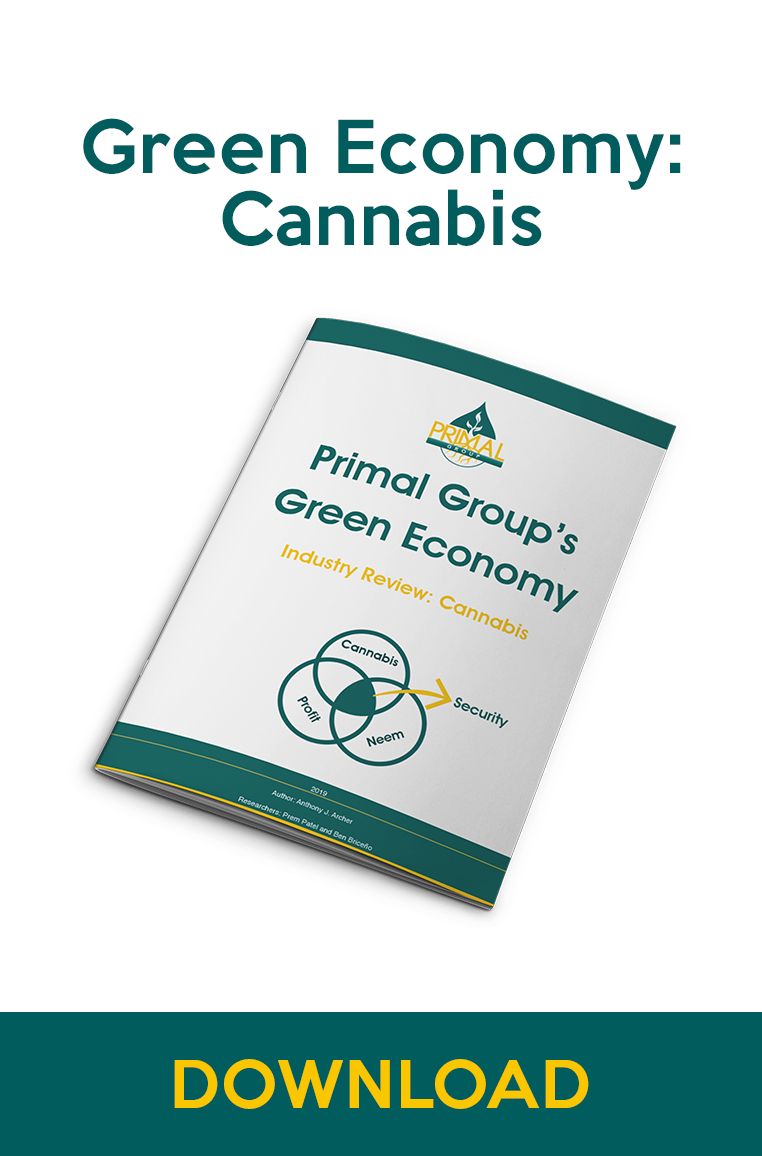The rise of the cannabis industry has led to the realization that there is a lack of federal regulations to guarantee a safe product for consumers. In our previous newsletters, we discussed the growth of the cannabis industry, health concerns arising from the use of toxic pesticides, and government actions designed to protect the public. The reality is that producers and governments must guarantee the sustainability and safety of the industry, to meet growing demand and protect consumers and the environment. Neem offers several natural and safe solutions for the cannabis industry, while also being more dynamic than synthetic pesticides.
While synthetic pesticides have played a key role in feeding the global population for decades now, the effect on human health and the environment has been massive. Ecosystems and all their living organisms are affected by pesticide use, making them one of the most dangerous substances on earth. A common misconception is the idea that synthetic pesticides outperform biopesticides in every aspect, both in terms of performance and price. This idea couldn’t be further from the truth, as biopesticides offer different modes of action to target pests.
Most people know that insecticides kill insects. However, how these chemicals work (their “mode of action”) remains a mystery to most of us. Understanding the method of operation of an insecticide requires knowledge of how it affects a specific target site within an organism. The target site is usually a critical protein or enzyme in the insect, but most insecticides affect broader targets. Although pesticides have multiple biological effects, toxicity is generally attributed to a single significant impact.
Synthetic pesticides’ toxicity relies on limited modes of action, and the more they depend on a single way of operation, the higher the risk of pests developing resistance. In an industry such as cannabis, the use of synthetic pesticides could mean a multi-million-dollar investment that may not adequately deal with the targeted pests and may even render the soil infertile.
Azadirachtin, a complex tetranortriterpenoid limonoid obtained from neem seeds, is the main component responsible for the toxic effects in insects. Neem extracts do not kill pests immediately but impact their feeding or life cycle until they are no longer able to feed, grow, and reproduce.

Since 2010, field trials on medicinal cannabis treated with the pure essence of neem have been conducted in Michigan, Colorado, California, Oregon, New Mexico, Washington and Arizona, all with positive results. In Michigan, a chemical technician at one of the state’s largest dispensaries led specific strain trials. The trial groups showed improved plant health and increased yields at an average of 55.6%, and as much as 82.7%.
In field trials, six strains of medicinal plants were sprayed with neem and showed the following improvement:
- Green Crack: 29.7%
- Purple Afghani: 64.9%
- Fire Bubba Kush: 47.5%
- Master Kush: 61.4%
- Critical Mass: 82.7%
- Burmese Kush: 50.2%
Commercial growers who grow with neem have gone on to win awards at various High Times Cannabis Cups. The Strongest Strain on Earth winner, Ghost Train Haze #1, was grown by Michigan’s King of Cannabis, who swears by neem products.
Primal believes that a critical factor for the future of the cannabis industry will be sustainable crop care. Neem is well on its way to becoming an essential resource in cannabis crop care for the same reason it is being utilized across agriculture. Natural and more sustainable solutions such as neem not only offer yield and nutritional benefits but also ensure that crops enjoy stronger resilience and better health. The almost exponential growth in the cannabis industry makes the neem opportunity even more interesting, especially considering that some of the most recognized growers in the field have already incorporated this powerful resource in their crop management systems.
Learn more about how the neem tree is well positioned to drive innovation and outperformance in the cannabis industry over the next century by downloading our Green Economy Cannabis Review.
To find out more about our projects, complete a call back request.
